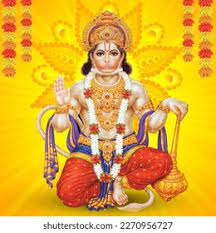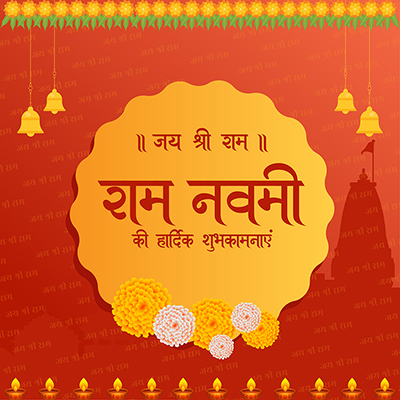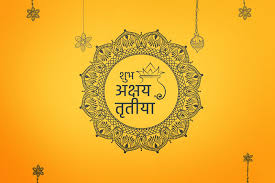Hanuman Jayanti
Hanuman Jayanti
II JAI SHREE RAM II
Hanuman is one of the most powerful and popular deities of
Hinduism and considered the patron God in wrestling. Hindus
celebrate the Hanuman Janmotsav or the birthday of Hanuman with
a grand festival known as Hanuman Jayanti. In most parts of India,
the auspicious festival of Hanuman Jayanthi is celebrated on the
full moon day (Purnima) of the Chaitra month which usually befalls
in March or April of the English calendar. But, moving towards south
India, it is celebrated on different dates in different states.
In Tamil
Nadu and Kerala, it is observed on the Margashirsha Amavasya (new
moon day) whereas, in Andhra Pradesh and Telangana, it is
observed on the 10th day, in the Krishna Paksha of Vaisakha month.
Karnataka celebrates this auspicious festival on the Shukla Paksha
Trayodashi (13th day) of Margashirsha month and, Odisha, the
eastern state of India celebrates Hanuman Jayanti on the 1st day of
the month of Vaisakha (in April).
According to mythology, Lord Hanuman is an incarnation of Lord
Siva (11th Rudra) and the most powerful being in all the realms.
Hindu devotees worship him as the epitome of devotion, faith, valor,
strength, energy, and selfless love. Lord Hanuman is one of the
prominent heroes and a central character of the Hindu super epic
Ramayana. According to the epic, He is a Vanara (a monkey-like humanoid form) and took birth to assist
Lord Ram.
Celebration of Hanuman Jayanti:
Lord Hanuman is a widely worshipped deity and has the ability to attain victory against all evils and provide protection to all His devotees. On the auspicious day of Hanuman Jayanthi, devotees visit Hanuman temples and offer prayers. Lord Hanuman was born at the time of sunrise, so, after a holy bath in the early morning devotees perform various rituals before the dawn itself. They apply red tilak (vermillion) on the forehead of Hanuman idol, chant different hymns and mantras, read Hanuman Chalisa, offer Diya, offer sweets, coconuts as Prasad, do Aarti, Pradakshina as per the tradition. Reciting Hanuman Chalisa or lines from the Ramayana (Sundarakand) are some common practices performed on this day. After completion of the puja, devotees apply red sindoor on their foreheads and distribute Prasada.
Mantras to Chant on this day :
As per the teaching in the purans, the following mantras are to be chanted on this auspicious day :-
Reciting these mantras as well as Hanuman Chalisa 108 times brings positive
results and helps to regain strength and confidence.
• Om Hanumate Namah.
• Hang Pawan Nandnaay Swaahaa.
• Hang Hanumate Rudraatmakaay Hung Phatt.
• Om Namo Bhagvate Aanjaneyaay Mahaabalaay Swaahaa.
• Om Anjaneyaya Vidmahe, Vayuputraya Dhimahi, Tanno Hanumat Prachodayat॥
Significance of Hanuman Jayanti:
Lord Hanuman is considered as the 11th Rudra avatar of Lord Shiva and is worshipped as a symbol of strength, knowledge, and devotion. It is believed that He is an immortal being and possesses immense power to eradicate all kinds of negativity or temptations. Lord Hanuman is an adherent devotee of Lord Ram and Sita, and had never shown his strength or valor without any purpose. On this day, offering prayers and chanting mantras to worship Lord Hanuman is helpful to achieve these kinds of virtues.
As per the teachings of Hindu mythology, if you want Lord Rama to fulfill all your wishes, you can reach
Him only through Lord Hanuman and Hanuman Jayanti is the most auspicious day for this. Lord Hanuman
is not only an absolute devotee of Lord Rama but also a merciful God who takes good care of His
devotees. Devotees strongly believe that reciting the divine hymn Hanuman Chalisa continuously helps to
overcome all sorrows and difficulties.
Legends of Hanuman Jayanti:
According to a popular legend, Lord Hanuman was born on a full moon day and his father Kesari was the son of Lord Brihaspati. His mother Anjana was a celestial body (apsara) who got cursed by a sage to live on earth. She was redeemed from her curse only after doing 12 long years worship of Lord Siva, and by giving birth to Lord Hanuman. Thus, Hanuman is regarded as an incarnation or reflection of Lord Shiva (11th Rudra avatar).
The Holy epic, Ram Charita Manas written by Goswami Tulsi Das, beautifully narrates the role of Vayu dev
(God of wind) in Hanuman’s birth. The epic describes that Vayu God played an important role to transfer
Lord Siva’s energy to Anjana’s (Mother of Hanuman) womb. Thus, Lord Hanuman is often called Vayuputra,
which means the son of Vayu.
On the auspicious day of Hanuman Jayanti, devotees love to remember Him as a naughty character in his
childhood days. One such legend beautifully explains that He crossed several mountains and flew to great
heights to eat the Sun, thinking it as a ripe fruit. A baleful planet, Rahu which was on its way to form an
eclipse with the Sun, came in front of the little Hanuman and stopped Him midway. Hanuman easily
defeated Rahu (who later requested Indra, the king of heaven, for assistance).
To this, Indra responded
immediately and threw His powerful weapon Vajra (thunderbolt) and hit the young Hanuman and made
Him unconscious. After this event, God Vayu found his son lying in an unconscious state on earth, and an
angry Vayu made life difficult for all living beings on the planet. Later, Lord Indra and all demigods realized
that they made a huge mistake and revived the young Hanuman and blessed Him with several boons.
Summary:
Hanuman Jayanti is celebrated to commemorate the birth of Hanuman who is an incarnation of Lord Shiva and a disciple of Lord Rama. On the day of Hanuman Jayanti, devotees in large numbers assemble at Hanuman temples to offer early morning prayers. It is an important festival for the Hindus and we celebrate it with great enthusiasm. People chant mantras, Hanuman Chalisa, offer aarti with a belief that He is the living embodiment of Ram-Naam. He is an ideal selfless disciple, a true Karma Yogi. He was a great devotee and served Lord Sri Rama with pure love and devotion. Every year, on the auspicious day of Hanuman Jayanti, devotees worship Lord Hanuman with a pure heart, some observe complete fast to invoke His blessings for a successful life.
II JAI SHREE RAM II



Very informative Content 👍